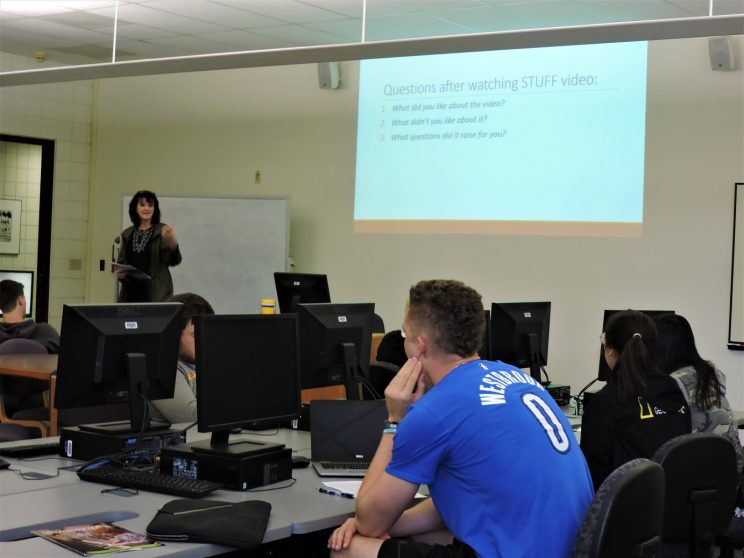What we don’t learn in college
By Mackenzie Miller – Horizon Editor-in-Chief

There’s one class most college students across the nation seem to be failing: adulting.
You turn your tassel, receive your degree and begin the daunting transition into the real world. But Hesston College students agree there are still many tricks of the trade they have yet to learn. And they need help.
“I wish college taught me how to take care of myself better,” sophomore Nebiyat Demissie said. “Having been used to others taking care of me for most of my life, college was a stark contrast when it comes thinking for myself.”
Even simple domestic tasks that were once done for college students, are now their responsibility.
“I wish I would’ve learned how to cook for myself,” sophomore Jeremy Deckinger said.
But there is one topic that scares college students more than anything else: finances. It’s the main focus of an Adulting School in Maine that teaches other unprepared young adults how to change their car’s oil, cook dinner or manage their money.
Holly Swyers, associate professor of anthropology at Lake Forest College (Lake Forest, Ill.) told National Public Radio that with our ages comes different responsibilities, and this age-graded system tells us just do this and it will be okay.
“And then you graduate from high school or from college, and suddenly, there’s no more rules about, if you just do this step, that’s what comes next,” Swyers added.
For sophomore Bible major Noah Yoder, the past two years at Hesston were packed with ministry classes alongside his theatre minor classes, leaving him no time to prepare for future financial responsibilities.
“I’m majoring in Biblical studies and double minoring so I wasn’t able to have any room in my schedule for business classes,” Yoder said. “I would have loved to learn how to do my taxes, and properly create a budget. I’ve had to learn those things through trial and error which has been scary.”
Yoder is not alone.
“The thing that scares me the most is responsibility of paying bills and making sure all of my finances are in order,” sophomore Jeff Kauffman said. “Up to this point in my life, I never really had to worry about those things, but next year I will need to pay rent, insurance, and buy food.”
While Hesston College offers classes in personal finance and business, Kauffman says students may not have the time to take them. He thinks specialty courses might be the solution.
“I want to learn some of the subtle things in adult, like managing bank accounts, getting a credit card, paying off loans, or maintaining a car,” Kauffman said. “I suppose there might be semester long courses where you learn these things, but I do not want to sit through a whole semester for just a small portion of information that I want. I would rather have a one or two night course that meets for an hour or two to learn about these topics.”
Hesston College faculty offered some advice in the area of financial worry, retirement and saving.
“Start putting money away in retirement as soon as you start the job,” head volleyball coach Deedee Landes said. “Then you will never know what life is like with the money so you won’t miss it. In the meantime you will be saving for the future.”
Director of International Student Services Carlota Ponds wishes she would have taken this advice herself.
“Even though I heard it often enough, I never really took seriously the advice to begin saving for retirement in my 20s,” she said. “Now in my 50s I wish I had.”
Business professor Vickie Andres wishes students would take that advice seriously, too. She wants them to know, the choices they make now matter. She says students are in for a big wake-up call when they graduate.
“Students are shocked at how much it takes just for living expenses, much less trying to save for short-term and long-term goals,” Andres said.
While students desire to learn, there is also a sense of fear of what they don’t know. Still, educating students is crucial, Andres said.
“Constantly ask questions of older family, friends, and co-workers,” Andres said. “Ask what they did to be successful or maybe more importantly, what they would do differently. Read, research, and be continuously listening and learning about financial matters.”

